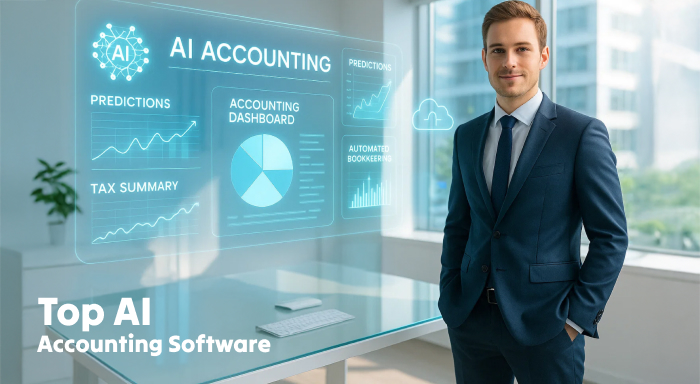Artificial Intelligence (AI) has been shaking industries up for a while, but 2026? Oh, this is the year AI is going to get its groove on!
AI has moved beyond a cool buzzword and is now taking its rightful role. It’s like that new kid in school who suddenly becomes the star of every class–whether it’s math, art, or even gym.
Do you know how huge the market for AI technologies is? It amounted to around 200 billion US dollars last year, but we can expect it to grow to over 1.8 trillion US dollars by 2030.
AI models are powering everything from medical diagnoses to self-driving cars, and the ripple effects are in line with science fiction.
So let’s see how exactly AI models are transforming industries, making them smarter, faster, and more innovative than ever before.
Security and safety
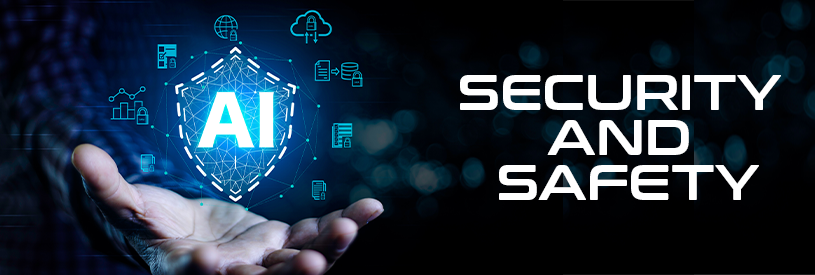
The most important role AI can take is that of a digital watchdog. The benefit of AI is that it is always alert for possible dangers. It can safeguard financial transactions or uphold compliance regulations, you name it. Ever since the beginning, AI models have transformed how companies and institutions protect themselves from risks.
For instance, AI-driven real-time transaction monitoring can analyze millions of transaction patterns in real-time and identify suspicious activities faster than ever before. When irregularities are spotted, companies can deter fraud and risks before they escalate.
AI models use pattern recognition and machine learning to detect potential fraud across various platforms, optimizing risk management strategies. These insights can allow your business to act proactively, so you can minimize financial loss and improve overall security.
Another example is maintaining compliance. Ever-changing regulations can be a headache, but AI eases this burden. It analyzes data continuously and flags any non-compliance issues in real-time.
Healthcare
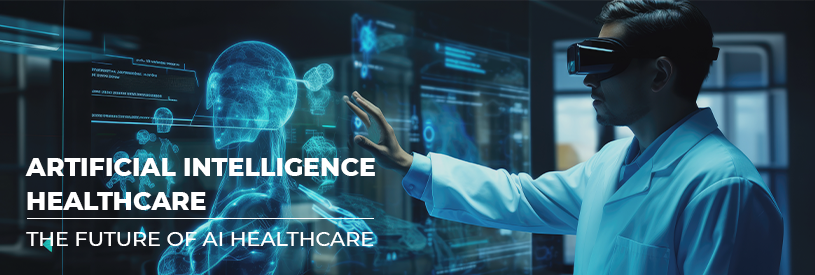
The healthcare industry is one of the biggest beneficiaries of AI. There are certain models that make breakthroughs in understanding protein structures, which helps speed up drug discovery and development. AI is also improving diagnostic tools, making them more accurate and accessible.
When it comes to early disease detection, AI models analyze vast amounts of medical data (like scans and tests) to catch diseases early, from cancer to heart disease. So now every hospital can have their own Doctor House.
AI also helps in tailoring treatments to individual patients by analyzing genetic data, lifestyle, and medical history.
The best part is that AI models accelerate the time it takes to discover new drugs. That cuts costs and speeds up the journey from lab to pharmacy.
Just imagine AI-powered hospitals where your treatment plan is as unique as your fingerprint. AI is making that a reality.
Finance
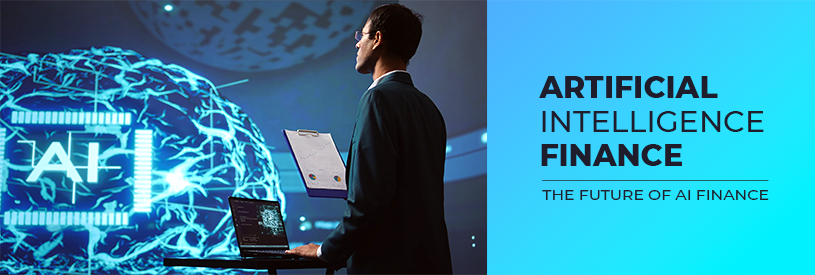
Banks and fintech companies are using AI models to make better and faster decisions, while improving security at the same time. For instance, you can find tools that can analyze financial reports, stock trends, and customer data, which gives a new level of insight to analysts and investors.
How is AI transforming finance?
AI models can analyze patterns in real-time transactions to detect and prevent fraudulent activity. AI can predict market trends and automate trades based on massive amounts of data. This way you can make smarter investment decisions. And when it comes to customer service then AI-powered chatbots should be your first choice since it can handle customer queries and offer financial advice easily. This kind of service makes banking more accessible and efficient.
Retail
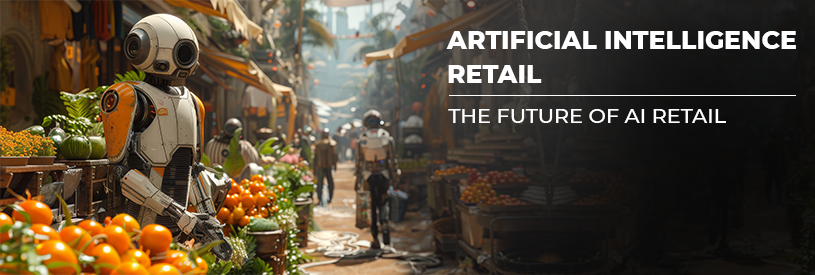
Shopping is a much smarter experience thanks to AI. Retailers use AI models to analyze customer behavior and optimize everything from supply chains to personalized product recommendations. You can find models that understand the relationship between language and visuals, which can improve product recommendations and search functionality.
AI models suggest products based on a customer’s browsing and purchase history, so you can have a personalized shopping experience.
When it comes to stocking goods, AI can predict demand for products, so there is no high risk of over or understocking. AI also analyzes customer reviews, social media chatter, and purchase data to provide retailers with valuable insights into trends and preferences.
AI can be an excellent shopping assistant if you know how to use it.
Manufacturing
Manufacturing has always been at the forefront of automation but with AI, everything has gone up a notch. AI models lead the way in robotics, improving the precision and efficiency of production processes while enhancing safety.
For instance, AI models can analyze data from machines to predict when they’ll need maintenance. This can significantly reduce downtime and improve productivity.
You know how defective products go to waste? AI can spot defects in products faster and more accurately than humans, so you’ll have more higher-quality goods. Al can also predict demand, optimize routes, and manage inventory to reduce waste and improve efficiency.
So you can have self-driving trucks and robots on the assembly line as well as other AI models. It could be fun, right?
Education
Educators can make adaptive learning tools that cater to each student’s individual needs. AI is making education more accessible and tailored to every learner.
AI has the ability to evaluate student performance and modify lessons in real-time for individualized learning and to ensure that each student receives the support they require. AI can grade exams and assignments faster, and teachers can focus on teaching rather than paperwork. Some AI models can act as virtual tutors and offer explanations, answer questions, and guide students through tough subjects.
The future of education is one where AI helps students learn at their own pace, so no one is left behind.
Entertainment and media
These fields are the fountain of creativity, and we all know how uncreative AI can be when left on its own. Still, AI is not without virtual horses in this race.
For instance, some tools can generate images and designs, but only based on text prompts. This enhances the realization of the visions of artists and creators. AI models can not just create new content but also curate it based on your preference.
Basically, AI can help generate everything from music to movie scripts. AI analyzes viewer data to recommend shows, movies, or music on individual tastes.
Do you like playing video games? AI is being used to create more realistic and responsive characters in video games, making gaming more immersive.
All in all, despite all the ethical dilemmas about using AI in the creative process, there is no doubt that AI tools are letting artists focus on the big picture while it handles the details.
Automotive
Well, we can’t really expect self-driving cars. Or can we? As it turns out, autonomous driving is no longer a distant dream, since some cars have AI models incorporated. These models improve every day, enabling cars to drive themselves, navigate traffic, and even park–all without human intervention.
With all these wonderful options, accidents could be reduced and commuting could be more efficient. AI models provide voice-activated assistance that helps with navigation, entertainment, and even vehicle diagnostics.
Besides being helpful in cars, Al also helps cities manage traffic flow by predicting congestion and optimizing routes, and thus you have reduced travel time.
Energy and utilities
Have you ever dreamed of living in a smart home, where one clap of your hands can enlighten every room and one word can make the oven bake and the TV turn on? It happens all thanks to AI, but when we talk about energy and utilities, there’s more to the story than just clapping your hands to command light. Utility AI models can predict demand for energy, enhance system stability, and even assist homes in lowering their carbon footprint.
AI systems assess energy consumption and instantly modify supply to improve the efficiency and dependability of power networks. You can monitor your energy usage and offer suggestions for reducing consumption, which all leads to greener homes and businesses.
And if you have renewable energy sources like solar and wind power, AI models will analyze weather panthers to optimize their performance.
Logistics and supply chain
Specifically in this field, AI models help companies deliver products faster and more efficiently, and, what’s more, reduce costs and improve sustainability.
Till delivery companies get a hold on self-driving vehicles, AI can be there for them to optimize delivery routes. This can be done through analyzing traffic patterns (AI is so good at analyzing, right?) and weather data, because weather is important too. It’s not the same driving in fine weather or during a blizzard. These predictions can cut down on fuel consumption and reduce delivery times. When it comes to inventory management, AI predicts demand and manages stock levels, so warehouses are never over or understocked. And imagine having robots and drones helping with last-mile deliveries, which can drastically speed up the shipping process.
Not just a tool
In 2026, AI is definitely not just a tool–it’s a transformative force. In the tide’s wake, many industries are already transformed, and others are waiting to embrace the future. In the manufacturing, logistics, and automotive industries, for example, AI is more than welcome to quicken the tasks and take over the boring and repetitive details. Other fields like entertainment and media are the most fun to implement with AI, even though some ethical dilemmas are still on the move.
AI models are here to streamline operations, boost efficiency, and create personalized experiences. And the industries that harness the full potential of AI are the ones set to lead in this brave new world.







